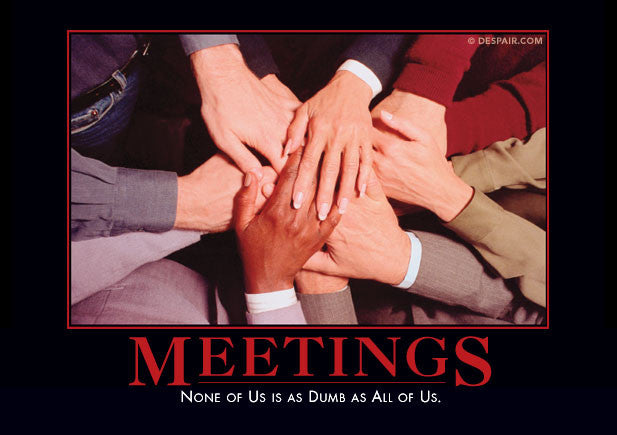Welcome to DU!
The truly grassroots left-of-center political community where regular people, not algorithms, drive the discussions and set the standards.
Join the community:
Create a free account
Support DU (and get rid of ads!):
Become a Star Member
Latest Breaking News
Editorials & Other Articles
General Discussion
The DU Lounge
All Forums
Issue Forums
Culture Forums
Alliance Forums
Region Forums
Support Forums
Help & Search
General Discussion
Related: Editorials & Other Articles, Issue Forums, Alliance Forums, Region ForumsWhen people gather in groups, bizarre behaviors often emerge
'When people gather in groups, bizarre behaviors often emerge': How the rise of online social networks has catapulted dysfunctional thinking
Opinion
By Fatima Seeme, David Green, Carlo Kopp published September 17, 2025
The pervasive spread of misinformation can be tracked to cognitive limitations, social influence and the global spread of online networks. Combatting it has become an "arms race" between truth and lies.When the COVID-19 pandemic broke out, a bizarre conspiracy theory swept through global social media: that the disease was caused by radio-frequency emissions from 5G cell phone towers. The wild theories spread across social media platforms. The belief in this conspiracy was so fervent that the media reported more than 100 incidents of arson and vandalism against 5G (and 4G) infrastructure, as well as numerous instances of abusive or threatening behavior against telecommunications workers.
Why do bizarre events like this happen? In our recent review article, published May 19 in the journal Frontiers in Communication, we showed that conspiracy theories and other widespread incorrect beliefs emerge from complex interactions involving people's cognitive limitations, social influence in groups, and the global-scale spread of ideas across social networks.
This fatal combination of processes at different scales — individual, group and global — has led to the online problems we are seeing today. Their complexity makes the resulting social trends incredibly difficult to combat.
Primed for poor thinking and bizarre group behaviors
The root cause of poor thinking lies in our evolution. Our ability to cope with complex information is limited, so our brains take shortcuts, such as confirmation bias — the tendency to notice things that match our preexisting beliefs and ignore those that don't. For example, we quickly forget waiting in a fast queue but remember how annoying a slow queue is, and ask, "Why am I always in the slow queue?"
Snip...more...
https://www.livescience.com/human-behavior/when-people-gather-in-groups-bizarre-behaviors-often-emerge-how-the-rise-of-online-social-networks-has-catapulted-dysfunctional-thinking-opinion
Opinion
By Fatima Seeme, David Green, Carlo Kopp published September 17, 2025
The pervasive spread of misinformation can be tracked to cognitive limitations, social influence and the global spread of online networks. Combatting it has become an "arms race" between truth and lies.When the COVID-19 pandemic broke out, a bizarre conspiracy theory swept through global social media: that the disease was caused by radio-frequency emissions from 5G cell phone towers. The wild theories spread across social media platforms. The belief in this conspiracy was so fervent that the media reported more than 100 incidents of arson and vandalism against 5G (and 4G) infrastructure, as well as numerous instances of abusive or threatening behavior against telecommunications workers.
Why do bizarre events like this happen? In our recent review article, published May 19 in the journal Frontiers in Communication, we showed that conspiracy theories and other widespread incorrect beliefs emerge from complex interactions involving people's cognitive limitations, social influence in groups, and the global-scale spread of ideas across social networks.
This fatal combination of processes at different scales — individual, group and global — has led to the online problems we are seeing today. Their complexity makes the resulting social trends incredibly difficult to combat.
Primed for poor thinking and bizarre group behaviors
The root cause of poor thinking lies in our evolution. Our ability to cope with complex information is limited, so our brains take shortcuts, such as confirmation bias — the tendency to notice things that match our preexisting beliefs and ignore those that don't. For example, we quickly forget waiting in a fast queue but remember how annoying a slow queue is, and ask, "Why am I always in the slow queue?"
Snip...more...
https://www.livescience.com/human-behavior/when-people-gather-in-groups-bizarre-behaviors-often-emerge-how-the-rise-of-online-social-networks-has-catapulted-dysfunctional-thinking-opinion
3 replies
 = new reply since forum marked as read
Highlight:
NoneDon't highlight anything
5 newestHighlight 5 most recent replies
= new reply since forum marked as read
Highlight:
NoneDon't highlight anything
5 newestHighlight 5 most recent replies
When people gather in groups, bizarre behaviors often emerge (Original Post)
littlemissmartypants
Friday
OP
PoindexterOglethorpe
(28,088 posts)1. Decades ago, when I was first studying anthropology,
there was some discussion about a "risky shift" groups of people will take that none of them would have taken alone.
I suspect the January 6th behavior of some Trump supporters comes under that category.
OC375
(284 posts)2. Human Groups

H2O Man
(77,979 posts)3. Recommended.
During times of great social stress, there is always an increase in conspiracy theories and superstition. This, of course, goes hand-in-hand with your post. A significant part of this is definitely because our brain seeks to identify patterns, and thus stressed people see more patterns where there are actually none. Not surprisingly, this tends to be a symptom of delusional thinking in an individual experiencing a major mental illness.